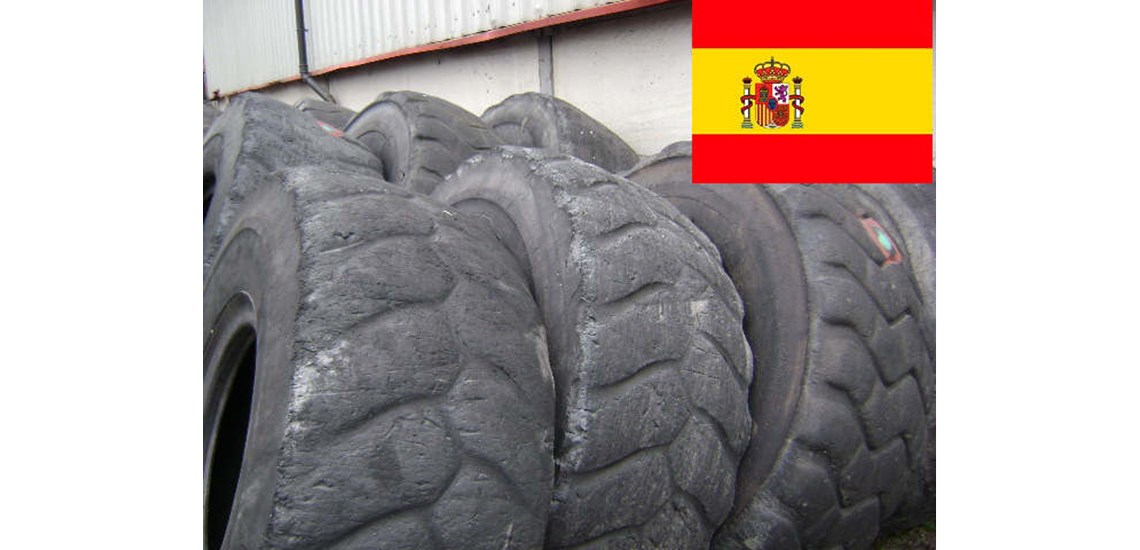The aim of the updated Decree is to drive the sector towards a more circular economy. As from 1st January 2021, the responsibility to recover and recycle all tyres in the market, with the exception of bicycle tyres, will be extended further.
A Spanish Royal Decree has Modified Tyre Recovery Requirements
According to press communication issued by the Ministry for Ecological Transition and Demographic Challenge, the law includes all tyres over 1,400mm.
The Council of Ministers, on the proposal of the Ministry for the Ecological Transition and the Demographic Challenge (MITECO), approved a Royal Decree “that will accelerate the transition of the end-of-life tyre sector towards a model of circular economy. Among other issues, it prohibits landfilling of large tyres, an issue that has been allowed until now, and prioritises the reuse of tyres, defining the conditions that must be met by second-use and retreaded tyres for their commercialisation”.
The Decree must now be published in the BOE, but the industry is already moving towards meeting the Decree.
Priority in the recycling scheme will be given to the reuse of the used tyres. In order to facilitate this, the Royal Decree defines the conditions that both second-use tyres and retreaded tyres must meet for their subsequent sale. Likewise, the standard also details the information that must be provided about the tyres to the consumer, which preferably will be delivered electronically.
It is expected that these improvements will result in greater control and traceability of management, which will help to avoid accumulation of ELT and, ultimately, improve the protection of the environment.
In order to include as many used tyres as possible in the management system, the Royal Decree extends the current management obligations corresponding to the tyre producers.
On the one hand, the norm establishes that producers are obliged to manage the tyres as many times as necessary until their complete recovery, including the management of the tyre if it is sold as a second-hand or retreaded product.
And, on the other, it extends the definition of tyre producer to those manufacturers of retreaded tyres in Spain on imported casings, and to importers of second-hand or retreaded tyres, which makes them subjects of expanded responsibility for ELT management. The Authorised Treatment Centres (CAT) will also have to comply with these obligations for tyres from vehicles for which they have, at present, no requirement to manage.
Producers can channel this management obligation through the collective liability systems, which manage the collection and recovery of used tyres in authorised facilities
The Decree also regulates “the exceptional procedure for collecting end-of-life tyres at the collection points, as well as the relationship between the collection points and the producers to pay for the collection and treatment of the tyres, in order to solve operational problems that have been recorded in the past.”
All tyre producers, as defined in the Decree, will be logged in the Product Producers Registry, where they must lay out their details at the time of their registration, and the information that they must report annually on the quantities and types of tyres they introduce into the national replacement market.
Lastly, the Royal Decree will improve the information available on the results obtained in the treatment of waste through a sector information system, aimed at providing greater transparency to the management system for end-of-life tyres.




















